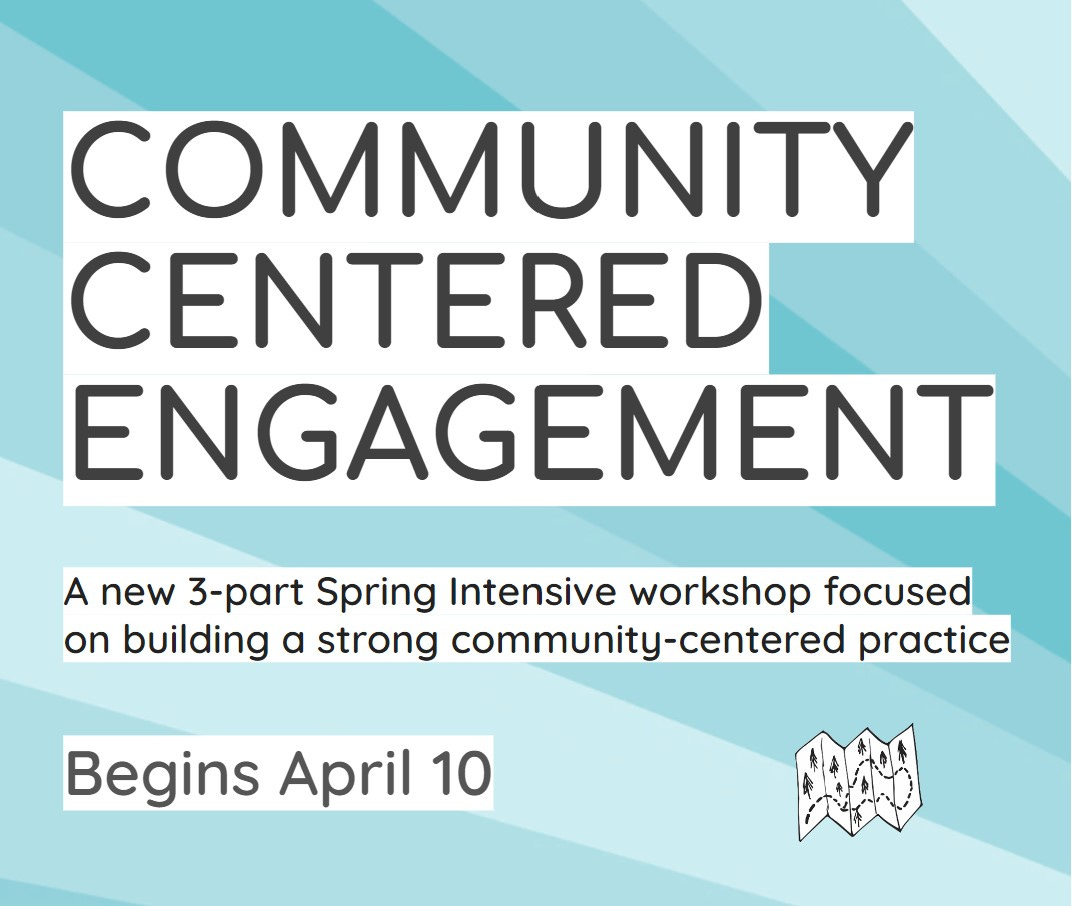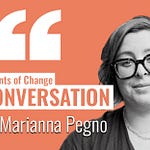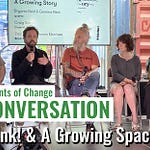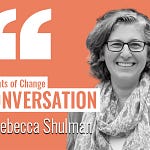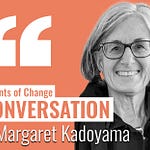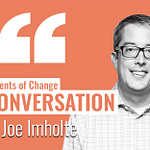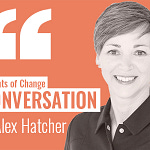Hey Changemakers,
I am so excited to continue this series of conversations here at Agents of Change, which gives me an opportunity to bring in the insights and perspectives of some incredible thinkers doing the work of making change happen.
For this episode, I am joined by Stacey Garcia, an educator, leader, gatherer, and connector, currently serving as the Program Manager in Methodology and Practice with the International Coalition of Sites of Conscience. Stacey has worked internationally in nonprofits, museums, and foundations to facilitate transformative changes toward social justice – most recently, as the Engagement Officer at the Community Foundation of Santa Cruz County. And prior to that, as Director of Community Engagement at the Santa Cruz Museum of Art & History, where I first met Stacey and had the fortunate opportunity to see first-hand her incredible work connecting the museum with its communities.
For me, Stacey has been a leading voice and changemaker when it comes to museums and community engagement, and her work has influenced and informed much of my own practice. So I am so thrilled to be able to share this conversation.
I connected with Stacey in advance of my workshop that kicks off on April 10th on “Community-Centered Engagement,” and it was fantastic to be able to speak with her about her own insights and core practices when it comes to being more community-centered.
Our conversation hit on some key questions, including:
How do we define community?
What does it mean for a museum or organization to be “community-centered”?
Who benefits from the work your organization is doing? And how can we center reciprocity and mutual power?
How can we rethink some of the traditional structures and processes of museums that might not lend themselves to authentic partnership work?
How can we begin to build a more community-centered practice one step at a time?
In addition to diving into these burning questions, Stacey also shared some closing thoughts on how we can begin to build meaningful community connections:
IDENTIFY ONE PARTNER: Begin by identifying one partner you want to work with, and start there.
GET TO KNOW THEM: Show up at their events, in their spaces, or experiences that are important to them. What are their strengths? What matters to them? Get to know your partners as human beings, and start by simply building a relationship (before you jump into any project).
I am so grateful for Stacey taking the time to share her work and practice with the Agents of Change community. I hope you find this conversation as meaningful as I did, and can take-away several key learnings and questions to bring to your own organization.
Get Started Now - Community-Centered Engagement workshop starts April 10
If you listened to this conversation with Stacey and you were interested in getting started in this work, then check out my “Community-Centered Engagement” Spring Intensive that begins on April 10th.
Through this 3-part virtual workshop, we will dive deeper into key aspects of community involvement, community partnerships, and audience engagement strategies at your organization. During this series of interactive, discussion-based online workshops (held on Zoom), we are going to:
learn about a needs-based approach to community involvement and participation
examine models of community involvement, audience participation, and co-creation, understanding how these models can help guide a community-centered practice
engage in group working sessions geared to applying community-centered strategies to your organization
develop strategies and actions that can be implemented as part of your institution’s ongoing planning and programming
One of my goals for this Spring Intensive is to create an online community where we can get to know each other and learn from one another, so the registration is capped at around 20. And there are still a few spots left!
I’m really excited to launch this workshop and bring together an incredible group for this first-ever Community-Centered Engagement Intensive.
If you are thinking about joining but have scheduling conflicts, or if you have any other questions at all, please don’t hesitate to contact me at murawski27@gmail.com!




